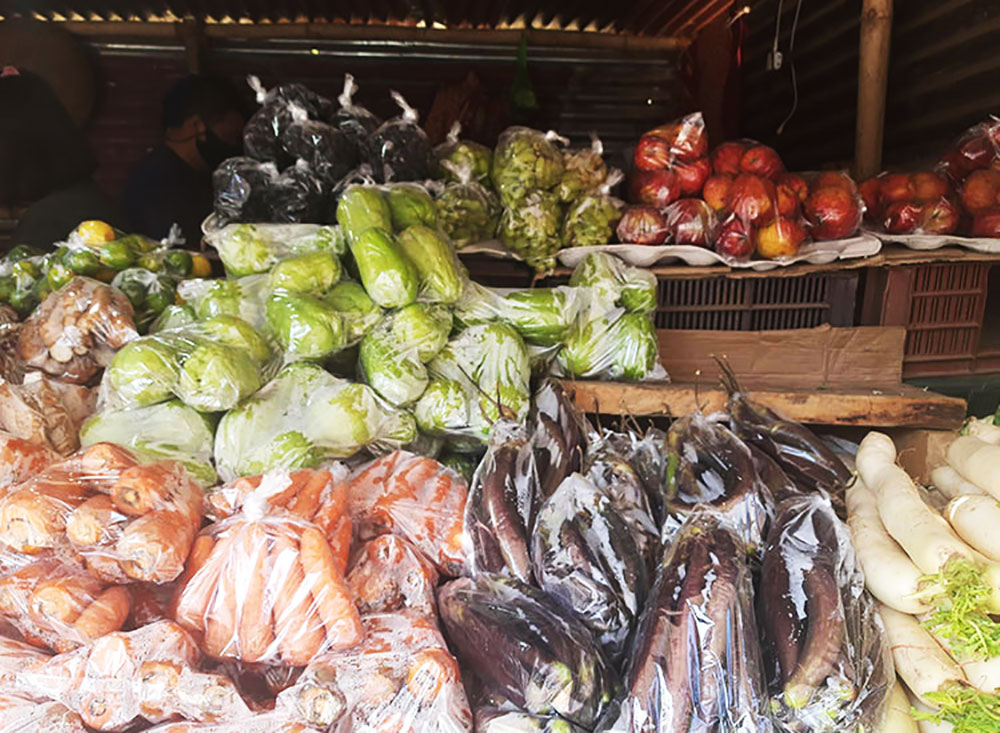
… the bumpy road of a nationwide ban
Bhutan made waves in 1999 when it announced a ban on plastic bags joining the global fight against plastic waste.
The initiative symbolised Bhutan’s unwavering dedication to protecting its pristine environment and curbing the severe environmental pollution caused by plastic.
However, despite subsequent reinforcement measures in 2005 and 2009, Bhutan’s path towards eradicating plastic waste has been plagued by significant setbacks, casting a shadow over the effectiveness of the ban. The latest attempt to reinforce the plastic ban was announced on April 1, 2019, after two decades of grappling with the complexities of the issue.
The National Environment Commission issued a notification stating that in order to reinforce the ban, business owners found selling or using carry bag plastic pouches to wrap doma would face fines of Nu 500 for the initial offence and Nu 1000 for the second offence. If they continued to violate the regulation, it would lead to the cancellation of their licence.
The purpose of the penalties was to discourage the usage of plastic carry bags and cultivate the culture of carrying eco-friendly bags among buyers and sellers.
Despite the regulation in place, the majority of the shopkeepers in Thimphu say that the government has not taken any significant measures to help in reducing the sale of plastic bags.
According to the vendors at the Centenary Farmers Market (CFM), most of the people visiting the market do not carry their own carry bags to buy essential items.
They say that if plastic bags are not provided, people don’t buy and they risk losing customers.
A vendor at CFM, Singye Dorji said that some people come to the market directly from office and it would be difficult for them to carry things if vendors did not provide plastic carry bags.
“When they buy vegetables and have nothing to carry, we cannot deny providing them the plastic bags,” he said.
A vendor from Tsirang sells vegetables in about 40 plastic bags a day. He said that when customers buy varieties of vegetables, it requires more plastics.
“Only a few people come with their own vegetable bags and I don’t have anything to say to the people who come without their own bags as well,” he said.
Meera, a 42-year-old vendor, orders plastic carry bags worth Nu 2500 in a month. She said that customers visit empty handed and it would be unwise for her not to give them the plastic bag.
Moreover, they said plastic helps them keep their goods fresh, especially cereals like puffed rice.
But the waste from using plastic is a heavy burden for those managing it.
Although the NEC did its part in terms of awareness and advocacy programmes, it did not bear a good result among the buyers and sellers.
Tseten Dorji, a shopkeeper in Thimphu, said that advocacy and awareness cannot help in implementing the ban if there are no alternatives or solutions to the problem.
Some said there is no one to strictly enforce and monitor the regulation.
Plastic bags stay a profit to retailers and customers, but despite the adverse impacts on the environment the ban has been mostly ineffective.
People are of the view that a ban on the use of plastic bags without any available alternatives would never be successful at achieving its objectives at all.
Meanwhile, the government expects to effectively manage the waste issue with its waste flagship programme coordinated by the office of the Prime Minister.












